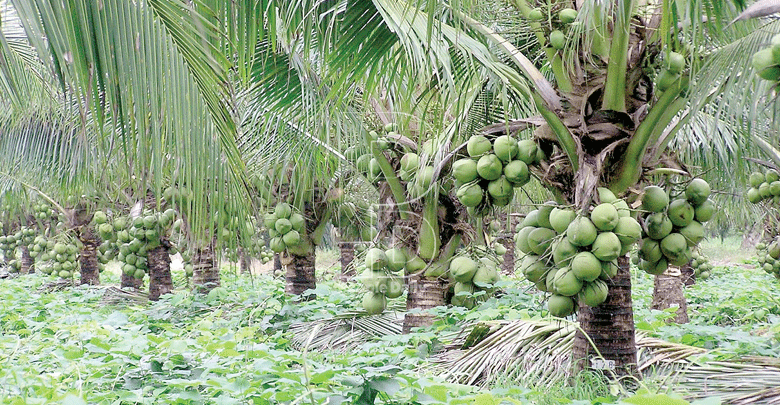Kilifi residents turn to mnazi dens as harsh economy bites
By People Reporter, August 11, 2021Charles Lwanga
Amidst harsh economic times brought about by the Covid-19 pandemic, most revellers in Kilifi have now abandoned bars and instead throng palm wine dens to quench their alcoholic appetite.
The trend has led to mushrooming of hundreds of mnazi dens popularly referred to as ‘Mangweni’ in Malindi, Watamu, Kilifi, Mtwapa, Magarini, Kaloleni and Rabai in villages and homesteads to serve revellers, who sometimes travel from as far as town to villages for escapades.
John Kahindi, a banker and a resident of Malindi who is a common reveller said he turned to palm wine, known in the region as mnazi, which only cost about Sh70 to Sh140 a bottle compared to beer which costs Sh200 to Sh300 a bottle depending on the restaurant.
“I am surviving on a pay-cut due to the Covid-19 pandemic. I opt partying in mnazi dens instead of clubs because mnazi is cheap compared to beer and other alcoholic drinks,” he said.
Following the Covid-19 outbreak, most of the hardworking Kenyans survived on half salary while others, especially those working in the hotel industry along the Coast were laid off completely.
Kahindi said with only Sh1,000, at the mnazi den, he is able to party to his fullness compared to clubs and restaurants where Sh1,000 can only purchase about four beers.
“With emerging cases of fake alcohol and liquor in the market, mnazi is a more reliable drink than those sold in bars, restaurants and liquor shops,” he said.”
Erick Mwashigadi, the owner of Stars and Gaters bar and restaurant in Malindi, says business is performing poorly since the Covid-19 outbreak last year.
“Customers in bars and restaurants have reduced leading to losses running into millions of shillings,” he said adding “We were expecting business to pick up this month but the pandemic has proven to be unpredictable.”
Joel Katana, a resident of Watamu, who lost his job in a hotel after staff were laid off, said he usually drinks mnazi to his limit before joining his friends in the restaurant.
“Mnazi is cheap compared to other alcoholic drinks. So I usually consume about four bottles of mnazi at Sh560 only before joining my friends in restaurants for a beer,” he said.
Alice Kadzo, a mnazi vendor at Mtangani in Malindi said the business has enabled her to educate and feed her children.
“I am able to make Sh800 to Sh2,000 a day after subtracting money used to purchase mnazi and transport,” she said.
Prefered customers
Kadzo said stale palm wine also known as ‘Kilalo’ is the most preferred among her customers.
To some extent, the mnazi traders have even introduced loud music and DJ to attract customers.
“For example, places like Kijitanga and Mgandini, mnazi traders have modified their seats and tables to compete with bars and restaurants,” said one of the traders who sought anonymity.
Sadly, in most cases, the traders and revellers disregard Covid-19 regulations and protocols leading to Kilifi County Covid-19 Committee to impose the regulations after the daily number of Covid-19 patients began to rise over the last two months.
“Mnazi is sweet when drunk with a traditional straw called ‘mboko’ given to customers, people usually share the straw and you may not know the health status of the former user,” said one of the users.
Kilifi County executive member (CEC) of trade and tourism Nahida Athman Mohamed said there is no policy controlling Mnazi trade in the county like those which compel traders alcohol and liquor traders to obtain permits to operate the business.
“But in future, we will come up with a policy to promote the business and enable locals to benefit fully from Coconut tree products,” she said.
Already, she said the County government has come up with an ambitious plan to set up a Sh226 million Coconut processing plant to revamp the coconut sub-sector.
“Once operational, we will be in direct contact with coconut farmers and ensure we eliminate brokers who have long taken advantage of our farmers by buying nuts at throwaway prices,” she added.
Mohamed said noted that the plant would have the capacity to process 300,000 litres of palm wine into sugar, vinegar and ethanol and be managed by a palm wine cooperative and a private investor, with the county government playing an oversight role.
According to ‘Coconut Nut Value Chain Status, 2020 Survey Report’ prepared by the Agriculture and Food Authority (nuts and oil directorate), the coconut sub-sector is one of the key economic drivers in Kenya and supports over 150,000 households.
